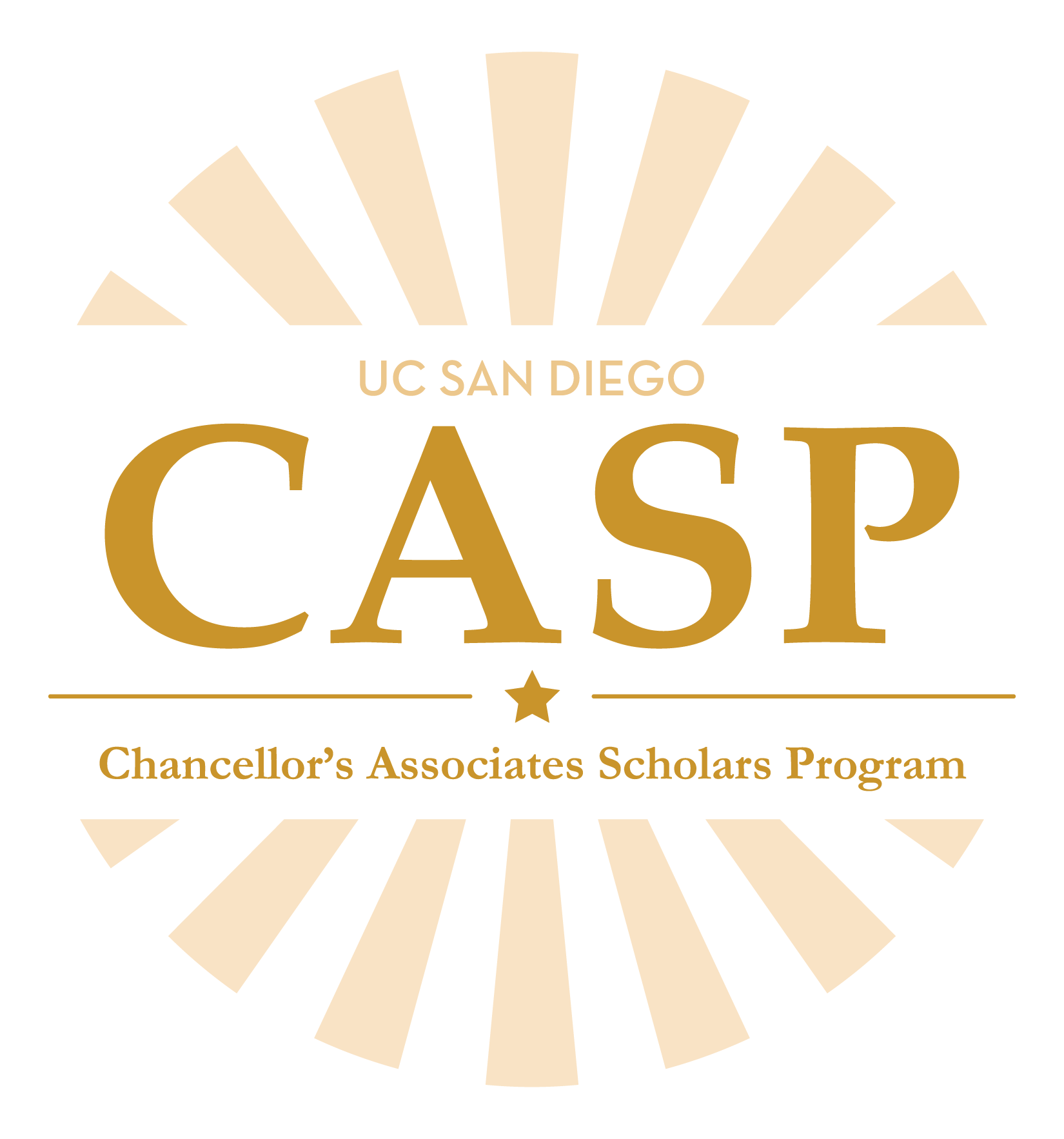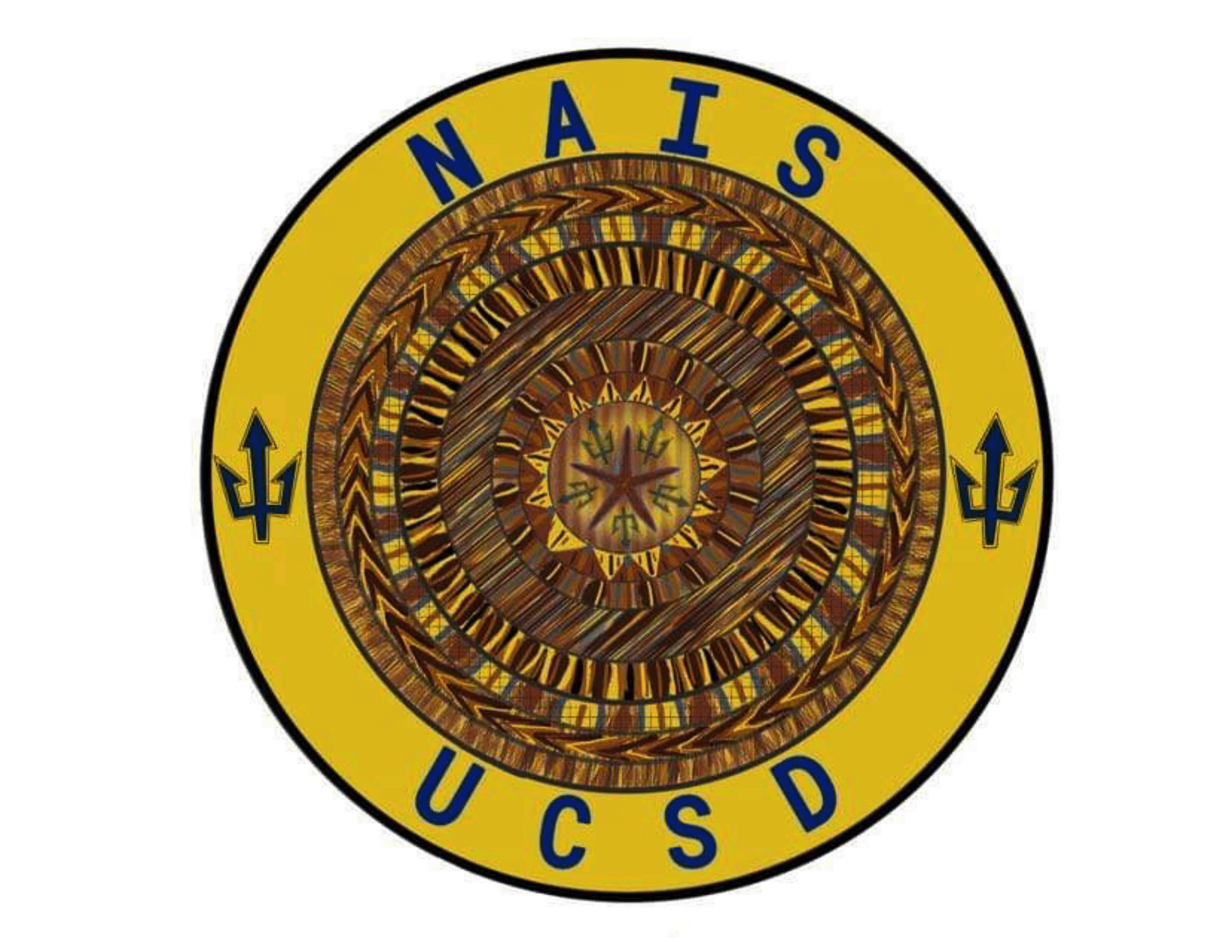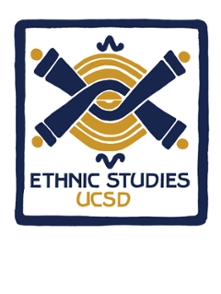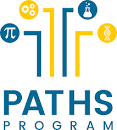Resources
Academic Resources for Students
Povides information about academic advisors in your undergraduate college and advice on choosing a major/minor, planning what classes to take, and helping to find opportunities that will enrich your university experience.
Academic Enrichment Program (AEP)
Programs designed to broaden your educational experience and encourage your pursuit of an advanced degree.
Provides students with the quality training and tools necessary to find meaningful life work.
Office of Academic Support and Instructional Services (OASIS)
A learning center at UC San Diego that provides most of the free tutoring on campus in a collaborative, supportive environment.
Student Promoted Access Center for Education and Service (SPACES)
A fully funded,
Provides programs and locations, making sure credits you take abroad will fit into your UC San Diego academic requirements, assists with exploring financial aid and scholarship opportunities, and preparing for the challenges of adapting to living overseas.
Works with units throughout UC San Diego to engage with students in their academic and co-curricular pursuits to support them in achieving their undergraduate, graduate, and career goals.
UCSD Undergraduate Scholarships
Provides information about how scholarships can help cover your undergraduate education costs
Chancellor's Associates Scholars Program (CASP)
In 2013, Chancellor Pradeep Khosla created a new undergraduate scholarship program, the Chancellor’s Associates Scholars, to recognize and support local, high-achieving, and talented students who:
- Have been admitted to UC San Diego
- Are California residents
- Have demonstrated financial need and family incomes of less than $80,000
No separate application is required for Chancellor's Associates Scholarship consideration. The UC application for undergraduate admission and the FAFSA or California Dream Application is all that is required. In addition, to be eligible for the scholarship, students must also be accepted to UC San Diego and must be eligible for the UC Blue & Gold Opportunity Plan, which is open to students with family incomes of $80,000 or less.
The Chancellor’s Associates Scholars Program (CASP) was created to accompany the scholarship and to support admitted scholars throughout their time at UC San Diego. The program represents UC San Diego's full commitment to support and develop scholars through graduation; it provides a wide range of services and opportunities to ensure that they thrive as UC San Diego undergraduate students, and are fully engaged in academics, student life, and university experiences.
CASP helps Chancellor's Associates Scholars thrive at UC San Diego through a summer transition program (CASP 101), a critical thinking seminar course, individualized financial aid and academic counseling, career and graduate school advising, guaranteed university housing (provided housing deadlings are met; 4 years for freshman, 2 years for transfers), priority enrollment, Peer Leader Mentorship, and much more.
To learn more about CASP, visit their website here.

College Prep and Admissions Resources
American Indian College Fund Native Pathways Magazine
This culturally relevant guide was developed to empower Native students to prepare, plan and successfully take the first steps of their higher education journey – with their identity firmly in hand. Helping students navigate school choice, applications, finances, and their first year at school, it includes contributions from Native graduates, professionals, and artists.
Community Resources
Local Resources
San Diego American Indian Health Center
Southern California American Indian Resource Center (SCAIR)
Southern Californian Tribal Chairmen's Association (SCTCA)
Southern Indian Health Council
San Diego Unified School District Title VI Program
American Indian Education - San Diego County
State Resources
American Indian Education Centers
National Resources
Graduate Student Resources
Indigenous Futures Institute
The Indigenous Futures Institute (IFI) aims to recast the relationship between a legacy of unethical scientific practice and Indigenous peoples. By creating pathways toward participatory science through design-thinking, IFI brings together global Indigenous communities to study, access, and harness science and technology, critically intervene in the production of knowledge, and dream up abundant and plentiful Indigenous futures in an age of climate crisis, global pandemics, and the continued denial of Indigenous sovereignty. Collaborating with visiting scientists and scholars, government agencies, nonprofit organizations, and other stakeholders, the IFI advances efforts of decolonization and environmental justice, drawing on Indigenous science and knowledge to combat the misuse of technologies and its often dire impacts on Indigenous communities. Put simply, IFI channels Indigenous knowledge through a community-based participatory model to create community-driven solutions to these challenges, imagining futures grounded in collaboration, decolonization, and Indigenous resurgence.
KAHNOP • To Tell A Story
KAHNOP • TO TELL A STORY is an 800-foot long path of words commissioned by the Stuart Art Collection at the University of California, San Diego. It is located near Epstein Family Amphitheater and the Trolley Station. Specifically, a composition honoring Kumeyaay women, Yeechash Cha'alk (A Woman's Heart), was transcribed and authored by Kumeyaay scholars Alexandria Miller (Kumeyaay/Rincon Luiseño) and Eva Trujillo (a Siny ‘Iipay [northern woman] from the Mesa Grande Band of Mission Indians reservation), and is interwoven throughout the path. To learn more and read the whole piece, visit their website here.
Kumeyaay Community Garden
The Kumeyaay people are the first inhabitants of what is now known as San Diego and the land that UC San Diego is built upon. As a result of settler colonial violence, Native communities constantly face erasure from their ancestral land. The Kumeyaay Community Garden, located in Marshall College, was created as part of building a community that centers the Kumeyaay and the Native plants significant to their way of life. Amid climate change, this garden recognizes and values Indigenous knowledge as crucial to sustainability. The goal of the Kumeyaay Community Garden is to share this knowledge with Native and non-Native peoples as we look to build sustainable and interdependent futures together.
Native American Associations and Conferences
American Indian Higher Education Consortium (AIHEC)
AIHEC provides leadership and influences public policy on American Indian higher education issues through advocacy, research, and program initiatives; promotes and strengthens Indigenous languages, cultures, communities, and tribal nations; and through its unique position, serves member institutions and emerging Tribal Colleges and Universities (TCUs).
American Indian Science and Engineering Society (AISES)
The Annual AISES National Conference is a one-of-kind, three-day event focusing on educational, professional and workforce development! Attendees include American Indian high school and college students, educators, professionals, tribal nations and tribal enterprises, universities, corporations, and government agencies.
The AISES National conference has become the premier event for American Indian Science, Technology, Engineering and Math (STEM) students and professionals attracting over 2,000 attendees from across the country.
American Indigenous Business Leaders (AIBL)
The mission of AIBL is to increase the representation of American Indians and Alaska Natives in business and entrepreneurial ventures through education and leadership development opportunities.
Association of American Indian Physicians (AAIP)
The Association of American Indian Physicians (AAIP) provides educational programs and support to American Indian and Alaskan Native students to encourage them to pursue careers in health professions or biomedical research. AAIP also works to improve the public health, in Indian Country, through various programs and numerous partnerships with tribal governments, federal agencies, national organizations, and tribal health centers.
National Alaska Native American Indian Nurses Association (NANAINA)
NANAINA is a committed group of persons from every corner of the country, dedicated to the health and well-being of the American Indian and Alaska Native people.
National Indian Child Care Association (NICCA)
The National Indian Child Care Association is a representative American Indian and Alaska Native organization serving the 268 Tribal CCDF grantees that represent Tribal communities across the nation. Tribal child care and early childhood programs work hard to provide our children, families, and communities with high-quality child care services all across Indian Country.
National Indian Education Association (NIEA)
The National Indian Education Association advances comprehensive, culture-based educational opportunities for American Indians, Alaska Natives, and Native Hawaiians.
National Institute for Native Leadership in Higher Education (NINLHE)
NINLHE is an alliance of higher education professionals committed to building strong Native communities by affecting meaningful change in higher education policies and practices that support and improve the educational experiences and success of Native students.
National Native American Bar Association (NNABA)
NNABA shares many of the same goals of diversity and increased understanding of Native American communities’ unique cultural and legal issues with minority bar associations. However, most of NNABA's lawyers are both U.S. citizens and citizens of their respective Tribal nations. NNABA members, therefore, also share the communal responsibility, either directly or indirectly, of protecting the governmental sovereignty of the more than 560 independent Native American Tribal governments in the United States.
Native American and Indigenous Studies Association (NAISA)
The Native American and Indigenous Studies Association (NAISA) is an interdisciplinary, international membership-based organization, comprised of scholars working in the fields of Native American and Indigenous Studies, broadly defined.
Native American Journalists Association (NAJA)
NAJA serves and empowers Native journalists through programs and actions designed to enrich journalism and promote Native cultures.
Society for the Advancement of Chicanos/Hispanics and Native Americans in Science (SACNAS)
SACNAS is an inclusive organization dedicated to fostering the success of Chicanos/Hispanics and Native Americans, from college students to professionals, in attaining advanced degrees, careers, and positions of leadership in STEM.
Native American and Indigenous Studies Minor
The Native American and Indigenous Studies (NAIS) minor provides an expansive introduction to the histories, lifeways, and cultures of Native American and Indigenous communities in the United States with comparative examples from Indigenous communities across the world. Drawing on course offerings in Ethnic Studies, History, Literature, Oceanography, Physics, Theater and other departments, students gain an understanding of the first peoples of San Diego and the United States.
The NAIS Minor is open to ALL students from ALL majors and colleges.
For more information on the NAIS Minor and it's requirements, contact the director, Dr. Andrew Jolivétte, and visit the NAIS Minor webpage.


Native American Research Centers for Health (NARCH)
The Native American Research Centers for Health (NARCH) program funds federally recognized American Indian/Alaska Native (AI/AN) tribes and organizations for health research, research career enhancement, and research infrastructure enhancement activities. Components of each NARCH award may be supported jointly by NIGMS and additional participating NIH Institutes, Centers and Offices with research missions well-aligned with the proposed activities.
Other Campus Community Centers
Black Resource Center
858-534-0471 | brc.ucsd.edu | brc@ucsd.edu
Facebook - Twitter
Established in 2013, the Black resource Center (BRC) is a Campus Community Center which serves the entire population of UC San Diego while emphasizing the Black experience. Birthed through strong advocacy of students, alumni and other supporters, the BRC seeks to provide support services and foster community for current undergraduate and graduate students. In addition to the student services, the center is positioned as a resource for alumni, faculty, staff and the community at-large.
Cross-Cultural Center
858-534-9689 | ccc.ucsd.edu | ccc@ucsd.edu
Facebook – Instagram – Tumblr – Twitter
The Cross-Cultural Center is committed to supporting the needs of UCSD’s campus communities by creating a welcoming and holistic learning environment for everyone. Our vision at the Cross-Cultural Center is to empower UCSD to recognize, challenge, and take proactive approaches to diversity for campus as a whole. As part of the UC San Diego Campus Community Centers, we value differences and building relationships at all levels of the university and experience community and diversity through broad lens.
LGBT Resource Center
858-822-3493 | lgbt.ucsd.edu | rainbow@ucsd.edu
Facebook – Instagram – Tumblr - Twitter
The LGBT Resource Center at UCSD is a diverse, open and public space for all members of the university community to explore issues relating to sexual and gender identities, practices and politics. It develops student leadership, builds workplace equity, promotes academic research, and provides resources. The Center challenges existing definitions of variant genders and sexualities by engaging in community building on- and off-campus. This Center sustains and develops visibility, sense of community, and knowledge of diverse queer people. (Adopted October 7, 2001)
Raza Resource Centro
858-822-0072 | raza.ucsd.edu | raza@ucsd.edu
Facebook – Instagram – Twitter
The Raza Resource Centro exists because of a strong student, staff, and faculty activist movement aimed at establishing a more inclusive campus. The Raza Resource Centro team is committed to our student’s success and we work collectively to meet the needs of our students. The Centro is a lively space where students study, meet, write, get tutoring, and most importantly are in community. It is a space where Latina/o Chicana/o organizations hold meetings, events and where cultura, arte, and academics interconnect.
Women’s Center
858-822-0074 | women.ucsd.edu | women@ucsd.edu
Facebook – Twitter
The UCSD Women's Center is a space in which people work collaboratively to foster the educational, professional, and personal development of diverse groups of women. The Center provides education and support to all members of UCSD regarding gender issues, with the goal of promoting an inclusive and equitable campus community.
Since opening in 1996, the UCSD Women's Center has served as a safe space and home environment for people of diverse backgrounds offering support, information and resources on gender and family issues.
PATHS Scholars Program
The PATHways to STEM through Enhanced Access and Mentorship (PATHS) Program’s mission is to increase the number, persistence, and success of underrepresented students in science, technology, engineering, math (STEM) and medicine.The PATHS Program is a four-year undergraduate scholarship and student support program that provides an annual scholarship, enhanced access to stratified mentorship, campus support, hands-on training, and academic preparation support. The programs’ all-access model for support, empowerment, and professional exposure will mobilize a new, diverse generation of STEM leaders by fostering STEM scholar identity development and early career identification through summer research programs as well as lab and internship placement. The PATHS Program selects annual cohorts students to participate in the 4+ year round pilot program, receiving a comprehensive package of student support components to address financial, cultural and academic barriers.
Ideal PATHS Scholar candidates will:
- Be admitted to a STEM major at UC San Diego as an incoming freshman
- Demonstrate an interest in the advancement of historically underrepresented populations in the sciences and related fields
- Students from underserved and underrepresented backgrounds are highly encouraged to apply
- Demonstrate commitment to character, culture, and community
- Must commit to living on campus for the first two years of the program
Native American-identifying students at UC San Diego interested in STEM are deeply encouraged to apply. For more information on the PATHS Scholars Program, their goals, and past PATHS Scholars, visit their website here.

Program in Medical Education – Transforming Indigenous Doctor Education (PRIME-TIDE)
The mission of the Program in Medical Education – Transforming Indigenous Doctor Education (PRIME-TIDE) is to prepare medical students for careers focused on providing healthcare to Native populations. This will be accomplished by didactic and experiential training on the specific healthcare needs, cultural context in which that care is provided and how medical research may inform decisions made by healthcare personnel.
Scholarships/Fellowships
American Indian College Fund/Full Circle Scholarship
American Indian Education Fund Scholarship
American Indian Graduate Center
American Indian Science and Engineering Society (AISES) Scholarship
Catching the Dream
Chancellor's Associates Scholarship Program
Cobell Scholarship
DAR Scholarship for American Indians
Federated Indians of Graton Rancheria (FIGR) UC Scholarship
Indian Health Services (IHS) Scholarship
Little Eagle Free Inc. Scholarship
Native Forward
Udall Scholarship
Tribal Membership Initiative
American Indian Education Fund Scholarship
American Indian Graduate Center
American Indian Science and Engineering Society (AISES) Scholarship
Catching the Dream
Chancellor's Associates Scholarship Program
Cobell Scholarship
DAR Scholarship for American Indians
Federated Indians of Graton Rancheria (FIGR) UC Scholarship
Indian Health Services (IHS) Scholarship
Little Eagle Free Inc. Scholarship
Native Forward
Udall Scholarship
Tribal Membership Initiative
Student Promoted Access Center for Education and Service (SPACES)
SPACES is a fully funded, student-run space that is focused on access, retention, and community through UC San Diego. The mission of SPACES is to act as an empowering dynamic on campus where UCSD students collaborate to achieve greater educational equity. This encompasses equal access to higher education, undergraduate retention and graduation, and matriculation to graduate and professional schools. SPACES values the power of student initiated action and organizing by providing an environment for student growth and development, and thus is a foundation to create leadership and unity through community engagement.
UC Native American Opportunity Plan (UCNAOP)
Beginning Fall 2022, The UC Native American Opportunity Plan (UCNAOP) ensures that in-state systemwide Tuition and Student Services Fees are fully covered for California Undergraduate and Graduate students who are enrolled in federally recognized Native American, American Indian, and/or Alaska Native tribes. You don't need to fill out a separate application to qualify for the Native American Opportunity Plan. If you qualify, UC will contact you directly with further instructions.
To be eligible for the Native American Opportunity Plan, students must meet all of the following criteria:
- Must be a current or newly admitted University of California undergraduate, graduate or professional school student.
- Must be a California Resident for tuition purposes.
- Must be an enrolled member in a federally recognized Native American, American Indian and/or Alaska Native tribe.
- Must be enrolled in a qualifying UC degree program.
- Tuition and fees must not already be covered by other financial aid sources (CalGrant, PelGrant, other scholarship funding, etc.).
To learn more about UCNAOP, For more information, please watch our educational NAOP webinar and visit the NAOP website.